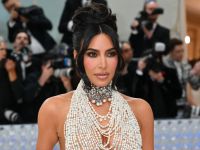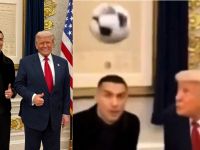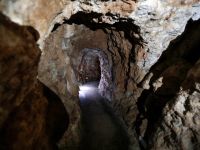Sudan is forging ahead with plans to hold simultaneous legislative and presidential elections in December despite civil war and threats of a boycott by almost the entire opposition.
The General Electoral Commission (GEC) last week began publishing preliminary lists of the names of eligible voters -- men and women aged 17 or older -- in Africa's largest country and one of its poorest.
The lists will grow until November 12 when they will be finalized, and then candidates will be officially designated between November 13 and 16.
The ruling National Congress (NC) party, which rose to power after a 1989 Islamist-supported coup, has already announced that President Omar al-Bashir will represent the party in the race for head of state.
For the moment he is the only candidate for president.
Elections to parliament, which is heavily dominated by the NC, are scheduled to take place simultaneously with the presidential vote from December 11 to 20.
They look set to revive the 360-seat chamber a year after Bashir dissolved parliament in a move aimed at weakening his former ally turned political rival, Hassan al-Turabi, who was speaker of the house and has since formed his own party called the Popular National Congress (PNC).
But the government recognizes that voting cannot take place in several regions of the south, where a civil war has raged for 17 years provoking regular famines and forcing people to flee north in their thousands.
Of the ten governorates in southern Sudan, the elections will run normally only in three: Bahr al-Jebel, Northern Bahr al-Ghazal and Upper Nile, according to the General Electoral Commission.
In four other governorates -- Al-Wihda, Western Bahr al-Ghazal, Eastern Equator and Jonglei -- they will only take place in government-controlled areas.
Elections will not take place at all, "for security reasons," in Western Equator, Warab and Buhairat which are under the control of John Garang's Sudan People's Liberation Army (SPLA).
But even in the north the elections risk lacking political significance as the country's main opposition forces have already announced a boycott.
"The only ones taking part will be the National Congress and some minor pro-government parties approved when the authorities tried to encourage pluralism," a western diplomat in Khartoum said.
The National Democratic Alliance (NDA), which groups the SPLA and northern opposition parties, has decided to boycott the proceedings, Ali Mahmud Hassanein of the northern Democratic Unionist Party told AFP.
"If it is serious enough, the government should pay more attention to the current efforts for national reconciliation with the opposition and for finding an end to the civil war than to holding one-sided elections," he said.
The Umma party of former prime minister Sadeq al-Mahdi, the other main northern opposition party, has also refused to take part, saying elections should not precede a national dialogue conference proposed by Egypt and Libya for reconciliation between the government and its opposition.
Turabi's PNC meanwhile has branded the elections as "unconstitutional and illegitimate" and will also boycott them.
But the electoral commission's secretary general, Jalal Eddin Mohamed Ahmed, stressed that the "independent" commission "will abide by transparency and neutrality."
He pointed out that Sudan has invited observers from the United Nations, the European Union, the Organization of African Unity and the Arab League to monitor the elections – KHARTOUM (AFP)
© 2000 Al Bawaba (www.albawaba.com)







